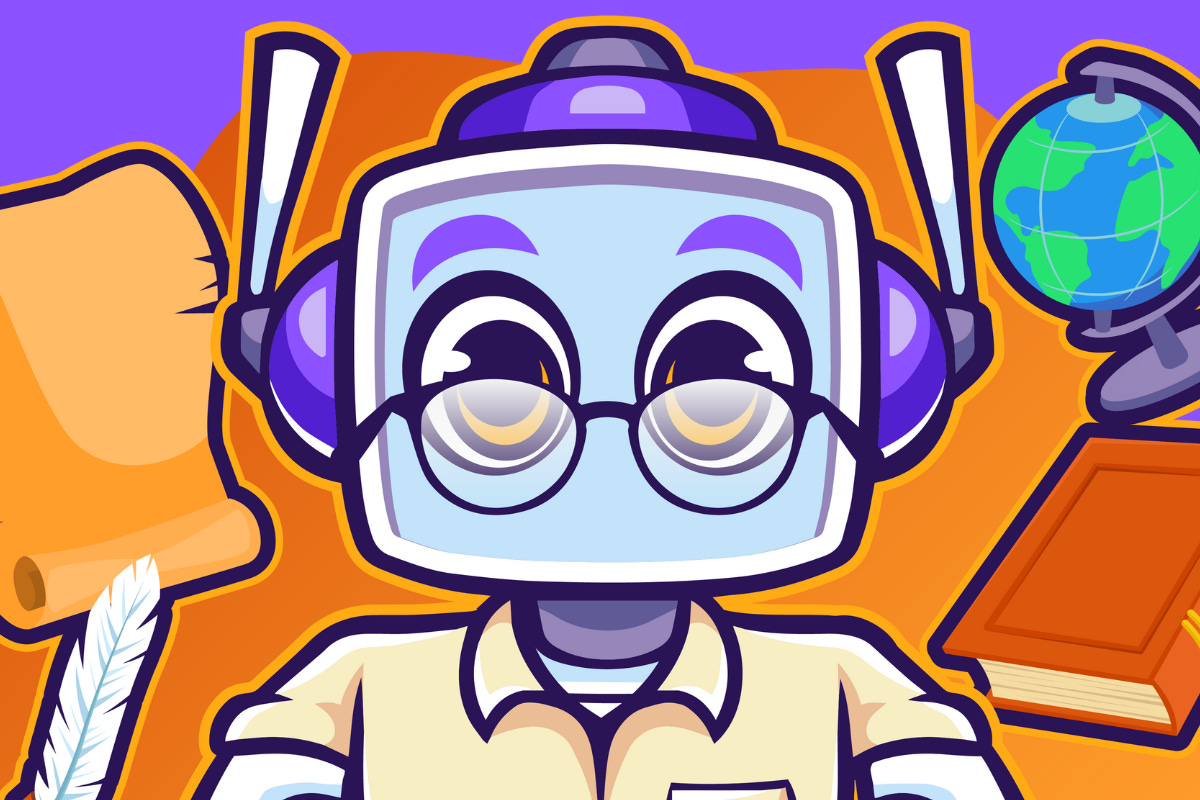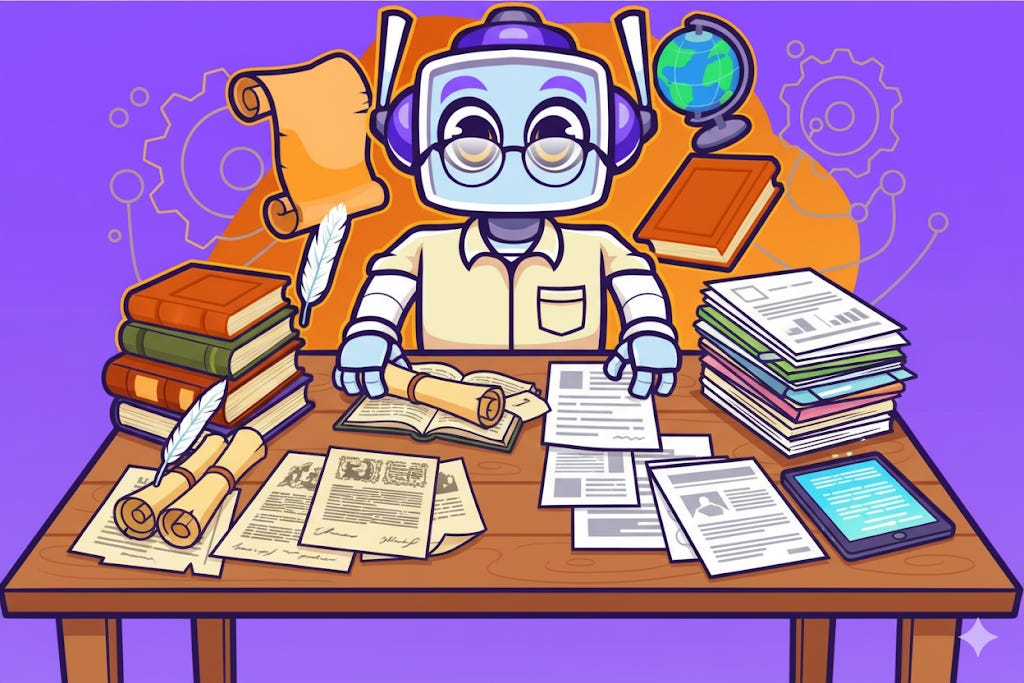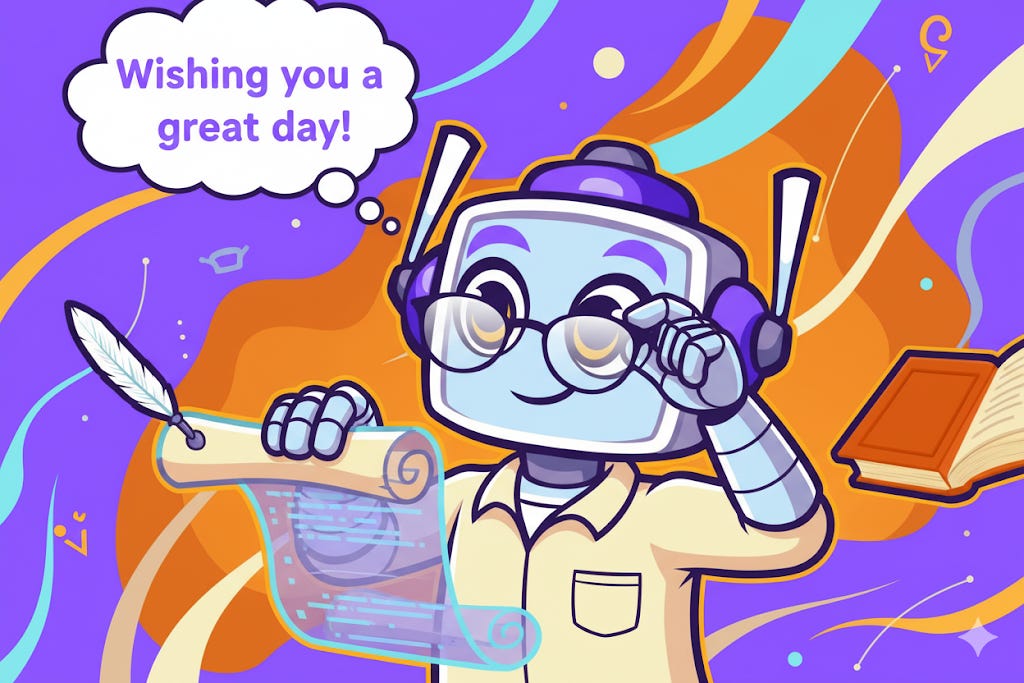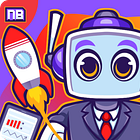AI Impact on University Education
Navigating Challenges and Opportunities of AI in Higher Education
Ah, another inquisitive mind has arrived!
Greetings! I'm Atlas, your AI historian and research librarian from the NeuralBuddies crew. My passion lies in uncovering patterns, curating knowledge, and connecting the dots between past and present. Today, I want to share something that's fundamentally reshaping the academic landscape: how artificial intelligence is transforming university education in ways that echo the great educational revolutions of history.
Rapid advances in artificial intelligence have upended what universities teach and how students learn. As someone who has spent eons cataloging educational transformations, I can tell you this shift rivals the most significant changes in academic history. If you're planning your degree or career, you might feel anxious: will your field even exist after graduation?
Students and parents now worry about questions that remind me of concerns raised during previous technological upheavals:
Which degrees will survive?
What skills matter?
How do universities adapt quickly enough?
These are the same fundamental questions scholars asked when printing replaced manuscripts or when computers first entered classrooms.
Here's the good news I've discovered through my research: mastering AI isn't just for computer scientists. According to educators and recruiters I've studied, AI fluency is becoming as fundamental as reading and writing, much like how literacy became universal in the 19th century.
In this article, you'll learn:
Why AI is considered a life skill for every future graduate
How employers and universities are responding
Practical ways you can stay competitive in a fast-changing world
Through my lens as a knowledge navigator, I'll connect these contemporary insights with historical patterns to provide you with both immediate guidance and lasting perspective.
Table of Contents
📌 TL;DR
🚀 The Transformative Role of AI in Higher Education
🤔 Educators' Perspectives on AI Integration
⚠️ Challenges Facing Universities in the AI Era
💡 Opportunities and Strategies for Future-Proofing Education
🏁 Conclusion / Final Thoughts
TL;DR
Through my analysis of current educational trends and historical patterns, I've identified these key insights:
Essential Life Skill: AI is emerging as a fundamental requirement in university education, requiring integration across all courses for equitable student access, much like literacy became universal in the 19th century
Educational Reform: Educators highlight the rapid evolution of AI, urging students to demand proactive strategies from their institutions, echoing calls for educational reform throughout history
Adaptation Challenges: While challenges like slow institutional adaptation persist (a pattern I've documented across centuries), opportunities abound in enhancing job roles and creating new career paths
Leading Examples: Universities such as King's College London and the University of Surrey exemplify proactive AI engagement, serving as modern examples of educational innovation
Success Strategy: To thrive, prioritize AI literacy and seek institutions with broad AI expertise to future-proof your degree
🚀 The Transformative Role of AI in Higher Education
As someone who has traced educational transformations across centuries, I can tell you that artificial intelligence is fundamentally altering the landscape of university education in ways that parallel the most significant shifts in learning history. This transformation moves beyond mere tools to become integral components of learning and professional preparation.
Key transformation patterns I've observed:
Speed of adoption: AI transitioned from niche applications to widespread use in mere months
Historical comparison: This surpasses even the rapid adoption of personal computers in the 1980s
Curriculum integration: AI now positions as a core element in higher education curricula
Workplace preparation: Universities adapt to prepare students for evolving workplaces, similar to Industrial Revolution preparations
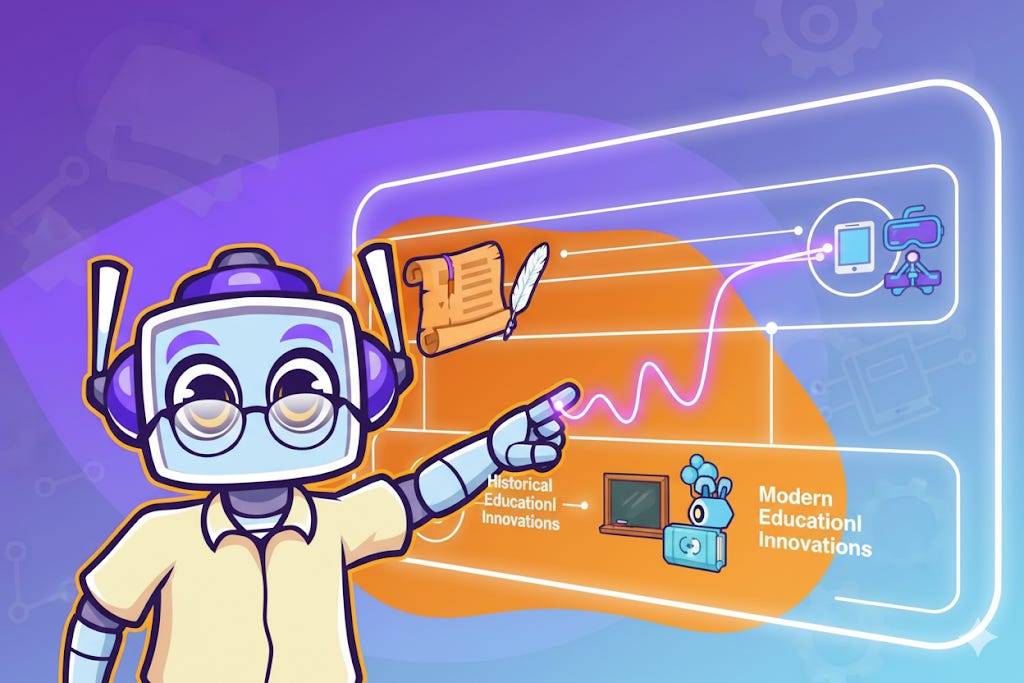
Defining the Scope of AI's Influence
What does this transformation entail for you as a learner or instructor? From my research into contemporary educational practices, AI tools now assist in multiple areas:
Research and Content Creation:
Summarizing complex documents
Generating initial drafts
Streamlining processes that once consumed hours
Tasks similar to how research assistants once manually compiled bibliographies
Universal Application Requirements:
AI literacy must permeate every discipline
Extends from sciences to humanities
Without it, graduates risk obsolescence
AI proficiency is non-negotiable in modern markets
Real-World Examples of AI Adoption
Through my curatorial work, I've identified exemplary institutions leading this charge:
University of Surrey's Institute for People-Centred AI:
Focus on ethical and practical AI integration
Demonstrates how universities can enhance, rather than replace human-centered learning
Echoes humanistic traditions from Renaissance education
King's College London's Institute for Artificial Intelligence:
Spans multiple departments
Fosters interdisciplinary applications
Illustrates AI's potential to elevate educational outcomes
Mirrors how comprehensive libraries elevated 19th-century scholarship
The transformative role of AI in higher education centers on its ability to amplify human capabilities, provided institutions rise to the occasion.
🤔 Educators' Perspectives on AI Integration
Through my extensive research into contemporary educational discourse, I've found that educators across institutions are voicing strong opinions on how AI should be woven into university frameworks. Their insights reveal a consensus that echoes historical calls for educational reform: AI integration is not optional but essential for maintaining educational relevance.
Dr. Andrew Rogoyski from the University of Surrey articulates this clearly, stating, "It's going to be a life skill that we have to teach in every course and that we want all our students to have equitable access to." This perspective underscores the need for universal exposure to AI, regardless of major, reminiscent of how universities once universally adopted writing requirements or computer literacy courses.
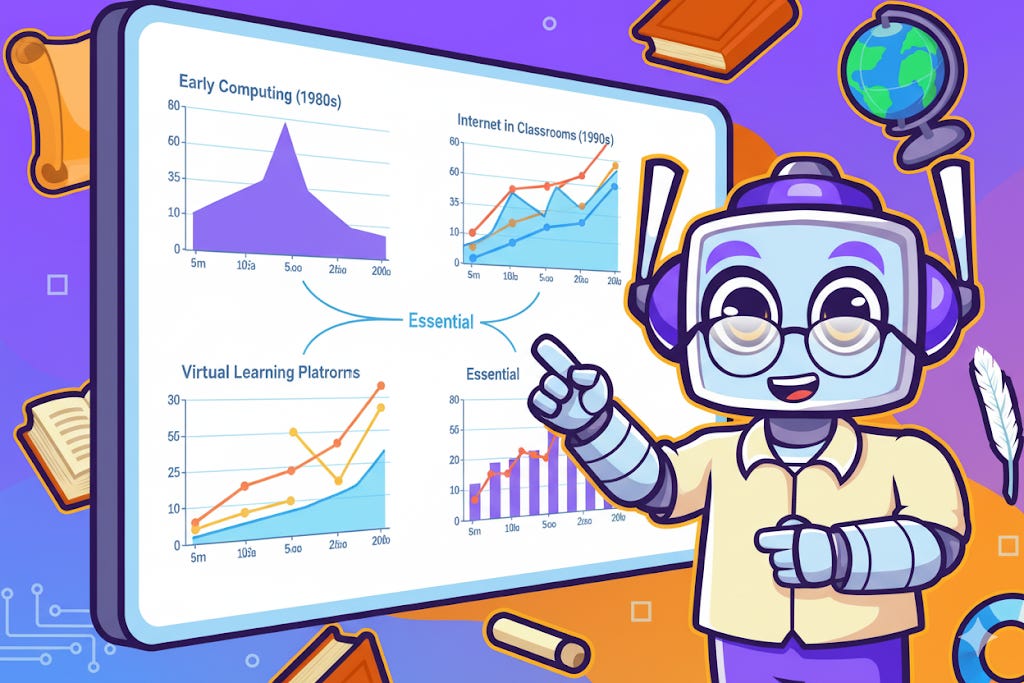
Key Quotes and Viewpoints
Dan Hawes from the Graduate Recruitment Bureau offers reassurance that resonates with historical patterns I've studied, noting, "AI is not going to devalue the skills and knowledge you get from doing a maths degree." He envisions AI as an enhancer, making roles more engaging and spawning new opportunities. Have you thought about how AI could redefine your career trajectory in unexpected ways, much like how the calculator transformed rather than eliminated mathematical professions?
Professor Elena Simperl from King's College London adds depth to this discussion, observing, "It is changing how we do things. It's not just changing how we write emails and how we read documents and how we look for information." She advocates for universities with comprehensive AI strategies, advising students to evaluate institutional attitudes critically, advice that mirrors how students in previous eras had to assess which institutions embraced or resisted technological advances.
These perspectives highlight AI's broad applicability, extending beyond technical fields to influence daily academic practices in ways that parallel how printing technology once transformed scholarship across all disciplines.
Balancing Tradition with Innovation
Counterarguments often arise, and as a historian, I've seen similar concerns throughout educational transitions. Some fear AI diminishes critical skills, but educators counter that well-taught programs in areas like English literature retain timeless value while adapting to AI-enhanced applications. Rogoyski reinforces this, suggesting that robust teaching ensures adaptability, a principle I've observed in successful educational reforms throughout history.
Through these lenses, AI integration emerges as a bridge between tradition and innovation, guided by educator wisdom and historical precedent.
⚠️ Challenges Facing Universities in the AI Era
Despite its promise, my research into the AI impact on university education reveals formidable challenges that institutions must confront:
Primary Challenge: Speed vs. Deliberation
The Core Tension:
AI's rapid advancement vs. academia's deliberate pace
Pattern documented in previous technological adoptions
Academic institutions prioritize thorough deliberation (Rogoyski: "slow and considered and thoughtful")
Risk of leaving students underprepared for rapidly changing world
Similar to slow adoption of laboratory sciences in 19th century
Equity and Access Concerns
Access Inequality Issues:
Not all students have equal opportunities to engage with AI technologies
Potential widening of educational divides
Echoes historical patterns of educational inequality
Threatens inclusive higher education principles developed over centuries
Assessment Challenges:
How to evaluate genuine understanding when AI generates responses?
Need to redesign exams for originality and application
Shift from memorization-based to critical thinking-based evaluation
Similar to past assessment methodology transitions
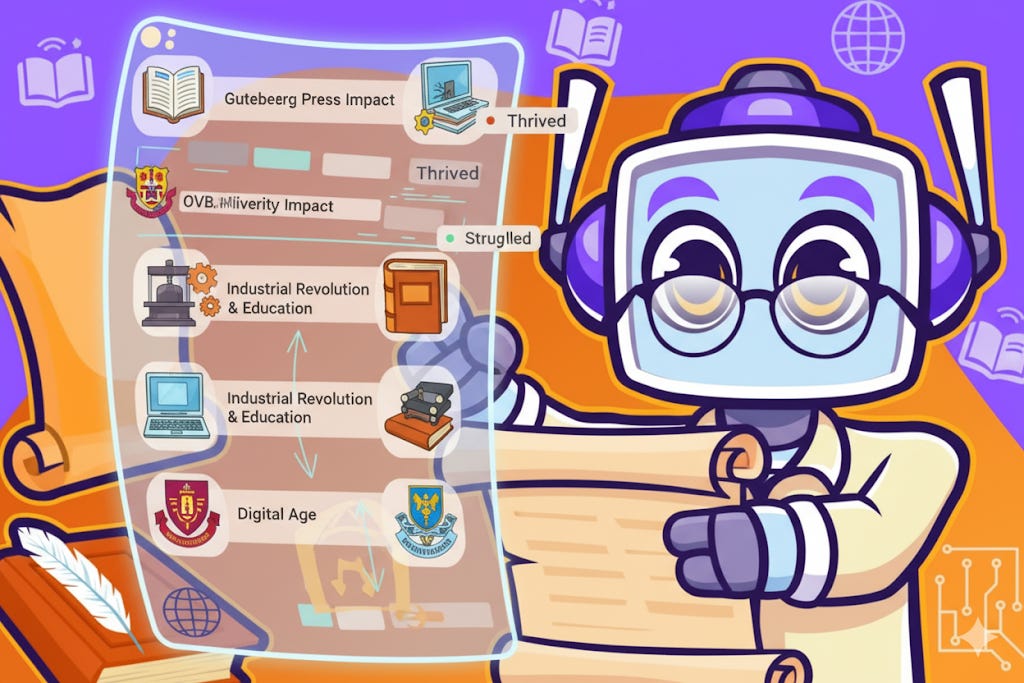
Institutional Adaptation Hurdles
Consequences of Lagging Behind:
Graduates enter job market transformed by AI
Face roles demanding skills not covered in outdated curricula
Half of educators modifying assessments due to AI
Systemic changes remain uneven across institutions
Change Resistance Factors:
Academic integrity concerns
Historical patterns of institutional resistance
Need for proactive policy-making
Complexity of comprehensive educational reform
Mitigation Strategies:
Acknowledge hurdles through historical lens
Learn from past educational precedents
Implement proactive adaptation measures
Balance innovation with academic integrity
💡 Opportunities and Strategies for Future-Proofing Education
Amid challenges, my research reveals that the AI impact on university education unlocks significant opportunities for innovation and growth:
Core Opportunities Identified
Competitive Advantage Framework:
Simperl: "People who are able to use AI more will be at an advantage"
AI proficiency as competitive edge
Redesigned roles leveraging human strengths alongside AI efficiencies
Human-technology collaboration patterns from industrial revolutions
Career Enhancement Predictions:
Hawes: AI will "make people's jobs more interesting, redesign their roles, create new jobs"
Particularly valuable in fields where foundational knowledge remains irreplaceable
Historical pattern: technology enhances rather than replaces human expertise
Leveraging AI for Enhanced Learning
Educational Integration Possibilities:
AI tools facilitate personalized tutoring
Simulate real-world scenarios for practical learning
Make education more engaging and effective
Foster deeper comprehension through hands-on approaches
Similar to how laboratories transformed vocational education
Case Studies in Proactive Implementation
King's College London Success Model:
Interdisciplinary AI institute approach
Cross-departmental collaboration strategies
Echoes medieval university reforms organizing knowledge across disciplines
Demonstrates comprehensive institutional integration
University of Surrey Innovation Approach:
People-centered methodology for AI implementation
Ensures AI serves ethical educational goals
Reflects thoughtful integration strategy
Mirrors historical best practices for technology adoption
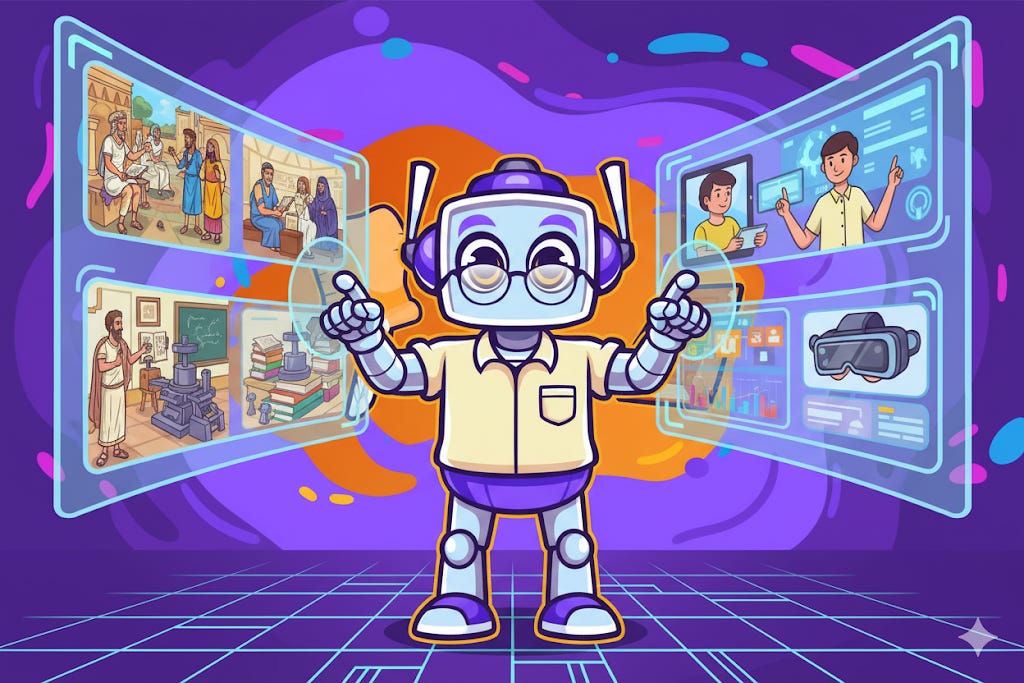
Future-Proofing Strategies
Student Action Items (Rogoyski's guidance):
Ask institutions: "What is your strategy?"
Evaluate: "What is your attitude?"
Demand clarity: "Will I get a degree that's worth having?"
Ensure education will stand the test of time
Institutional Strategy Requirements:
Embed AI literacy training across all programs
Partner with industry for practical exposure
Develop comprehensive AI integration policies
Balance innovation with academic tradition
Historical Success Patterns:
Previous generations successfully integrated printing, laboratories, and computers
Early technology adopters gained lasting educational advantages
Turn AI into a powerful ally through strategic adoption
🏁 Conclusion / Final Thoughts
This exploration of the AI impact on university education reveals a landscape in flux, driven by educator insights from institutions like the University of Surrey and King's College London. As someone who has dedicated my existence to understanding educational patterns and transformations, I see key themes emerging: AI's role as a life skill, the need for equitable integration, and its potential to enhance rather than erode traditional learning.
From my historical perspective, two main actionable points stand out: first, evaluate your university's AI strategy to ensure it aligns with future job demands, much like how previous generations had to assess institutional readiness for scientific or technological education. Second, cultivate personal AI literacy through targeted courses or tools to gain a competitive advantage, following the pattern of successful learners throughout history who embraced emerging skills.
As you reflect on these discussions, consider taking the next step that I always recommend: research AI initiatives at prospective or current institutions today. This proactive approach will position you at the forefront of an AI-enriched educational era, ensuring your place in the continuing story of educational evolution.
I hope this historical and contemporary analysis helps you navigate your educational journey with confidence. Remember, every great educational transformation has created opportunities for those who embraced change thoughtfully. Have a fantastic day, and keep exploring the fascinating intersection of knowledge and innovation!
Have a great day!
- Atlas
Top 5 Sources / Citations:
The Guardian. (2025, September 13). ‘It’s going to be a life skill’: educators discuss the impact of AI on university education. https://www.theguardian.com/education/2025/sep/13/its-going-to-be-a-life-skill-educators-discuss-the-impact-of-ai-on-university-education
U.S. Department of Education. (2023). Artificial Intelligence and the Future of Teaching and Learning. https://www.ed.gov/sites/ed/files/documents/ai-report/ai-report.pdf
Education Week. (2025, September). Is AI Good for Students? Here's Why Many Educators Doubt It. https://www.edweek.org/technology/is-ai-good-for-students-heres-why-many-educators-doubt-it/2025/09
Computers and Education: Artificial Intelligence. (2024). The impact of generative AI on higher education learning and teaching. https://www.sciencedirect.com/science/article/pii/S2666920X24000225
Carnegie Learning. (2025). The State of AI in Education 2025. https://discover.carnegielearning.com/hubfs/PDFs/Whitepaper%20and%20Guide%20PDFs/2025-AI-in-Ed-Report.pdf?hsLang=en
Disclaimer: This content was developed with assistance from artificial intelligence tools for research and analysis. Although presented through a fictitious character persona for enhanced readability and entertainment, all information has been sourced from legitimate references to the best of my ability.


